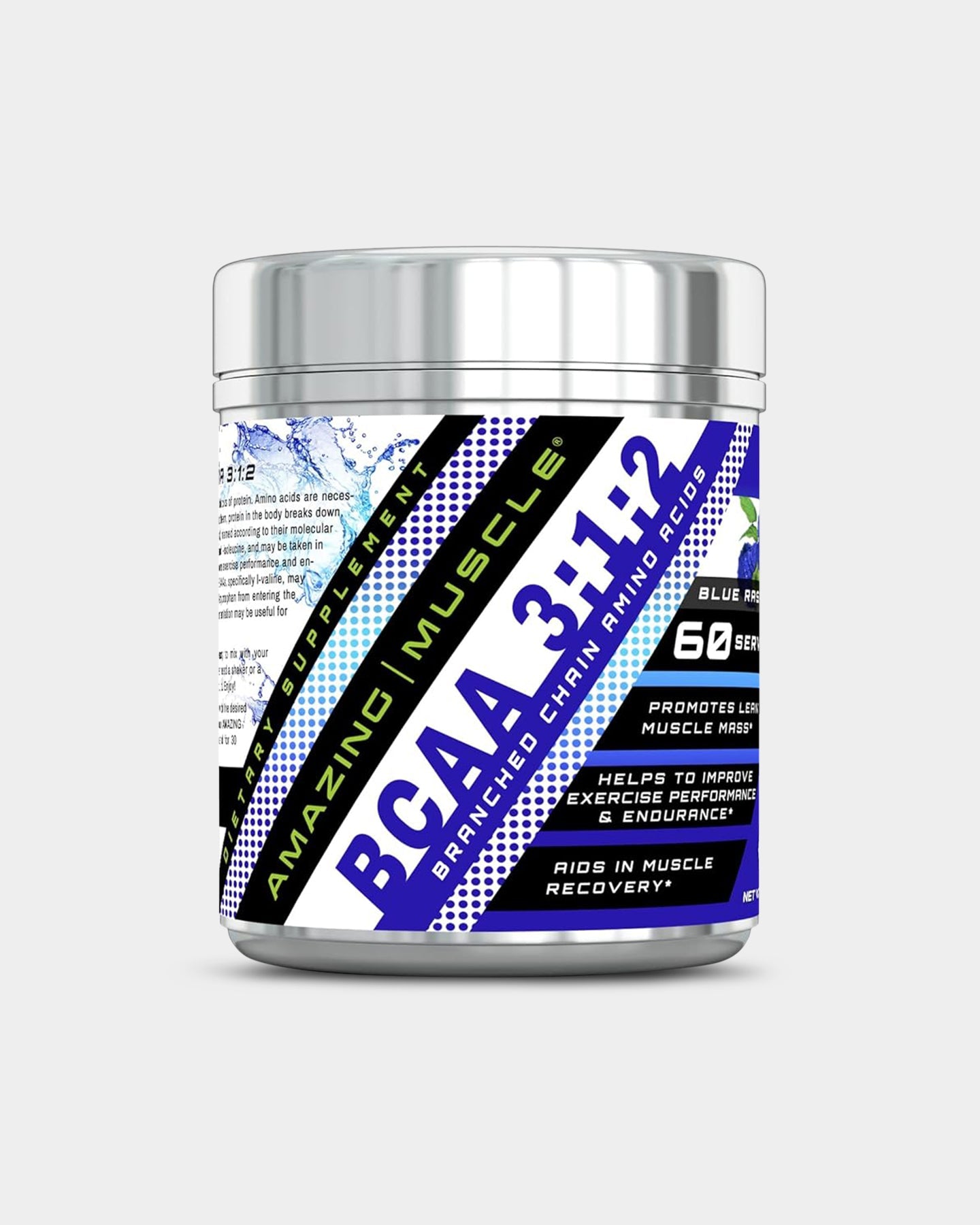Effective Ways to Use BCAA Supplements for Improved Muscle Recovery in 2025
In the dynamic world of fitness and muscle recovery, Branched-Chain Amino Acids (BCAAs) have emerged as a cornerstone for athletes and fitness enthusiasts. These essential nutrients, comprising leucine, isoleucine, and valine, play a crucial role in promoting muscle growth, recovery, and performance. In 2025, utilizing BCAAs effectively has become more important than ever as the understanding of their benefits and applications deepens. This article explores the various ways to incorporate BCAA supplements into your fitness regimen to enhance muscle recovery, drawing on the latest research and trends.
BCAAs offer numerous advantages for muscle recovery, such as reducing muscle soreness, preventing muscle breakdown, and aiding in faster recovery post-workout. As we delve into the effective ways to use BCAAs, we’ll also highlight their benefits, optimal dosages, and timing for maximum efficacy. By the end of this article, you’ll be equipped with the knowledge to make informed decisions about BCAA supplementation, potentially transforming your recovery experience during your fitness journey.
Key Takeaways:
- BCAAs are vital for muscle recovery and growth.
- Understanding the right dosage and timing can maximize benefits.
- Exploring the different forms of BCAAs can help you find what suits you best.
Essential Benefits of BCAAs for Muscle Recovery
Before diving into the specifics of BCAA supplementation, it’s crucial to understand the essential advantages these amino acids provide. Building on our previous discussions about the importance of nutrients in fitness, BCAAs stand out in terms of their unique benefits.
The Role of BCAAs in Muscle Recovery
BCAAs are particularly effective in aiding recovery due to their role in protein synthesis. When consumed, they are directly metabolized in the muscles, contributing to the rapid repair of muscle tissues damaged during intense workouts. Studies suggest that BCAAs can help reduce muscle soreness and fatigue, leading to quicker recovery times.
Reduction of Muscle Soreness
After strenuous exercise, many athletes experience delayed onset muscle soreness (DOMS). Research indicates that BCAA supplementation can significantly reduce the severity of DOMS. This quality is particularly beneficial following high-intensity training sessions, allowing athletes to maintain their training schedules without disruption.
Prevention of Muscle Breakdown
Another significant benefit of BCAAs is their ability to prevent muscle breakdown, which is a common issue during calorie-restrictive diets or long-duration workouts. By inhibiting muscle protein catabolism, BCAAs help maintain muscle mass, an essential goal for those engaged in strength training and bodybuilding.
How to Properly Integrate BCAAs into Your Routine
With these foundational benefits understood, let’s explore how to effectively integrate BCAAs into your daily nutrition. This progression naturally leads us to the methods of BCAA utilization that align with your fitness objectives.
Timing of BCAA Intake
Optimal timing for BCAA supplementation can significantly enhance their efficacy. Many experts recommend consuming BCAAs before or after workouts to maximize their recovery benefits. Taking BCAAs prior to training can help reduce fatigue, while post-workout consumption aids in recovery and muscle repair.
Dosage Recommendations
The appropriate dosage of BCAAs can vary based on individual needs and training intensity. Generally, a common recommendation is to take between 5-20 grams depending on the length and intensity of your workout. It’s important to consult with a healthcare provider or a nutritionist to tailor your intake to your specific goals and body composition.
Different Forms of BCAAs
BCAAs are available in various forms, including powders and liquids. Powdered BCAAs can be easily mixed with water or shakes, making them convenient for pre- or post-workout nutrition. Liquid BCAAs are also available, which may offer a quicker absorption rate for those seeking immediate nutritional aid.

Exploring BCAA Formulations and Their Benefits
As the trends in supplementation evolve, so do formulations of BCAAs. This naturally leads us to a discussion about the various formulations available and how they can contribute to improved muscle recovery.
Understanding BCAA Ratios
BCAA formulations often come labeled with a ratio indicating the amounts of leucine, isoleucine, and valine present. For example, a 2:1:1 ratio is popular as it emphasizes leucine, which plays a crucial role in muscle protein synthesis.
Enhancements with Additional Ingredients
Some BCAA products on the market are enhanced with additional ingredients like electrolytes, vitamins, or other amino acids to promote hydration and muscle recovery. It’s essential to choose products that align with your specific dietary preferences, such as vegan options, and those without artificial additives.
BCAAs and Specific Fitness Goals
Whether your goals are weight loss, muscle building, or endurance improvement, understanding how BCAAs support these targets is vital. For example, BCAAs can play a significant role in preventing muscle loss during caloric deficits often associated with fat loss diets.

Common Mistakes When Using BCAA Supplements
While understanding the benefits and applications of BCAAs is essential, avoiding common pitfalls can enhance your experience even further. Building on the strategies we’ve discussed, let’s explore some mistakes to avoid.
Incorrect Timing of BCAA Consumption
One of the most frequent errors is neglecting the timing of BCAA intake. Consuming them outside the recommended windows can diminish their effectiveness. Engaging in a consistent routine of taking BCAAs pre- or post-workout can maximize their recovery benefits.
Ignoring Dietary Sources of BCAAs
Many individuals focus solely on supplementation and overlook the dietary sources rich in BCAAs, such as chicken, fish, and dairy products. Integrating a balanced diet rich in protein can complement the effects of BCAA supplements.
Overreliance on Supplements
Another common mistake is relying solely on BCAAs without a well-rounded diet. Supplements should enhance your nutrition, not replace whole food sources that provide a wide array of nutrients necessary for overall health and performance.
FAQs about BCAA Supplements
What Are BCAAs, and Why Should I Take Them?
BCAAs, or Branched-Chain Amino Acids, are essential nutrients that support muscle growth, recovery, and energy production during workouts. Taking them can help reduce muscle soreness and enhance recovery.
How Much BCAA Should I Take Before a Workout?
A typical recommendation is 5-10 grams of BCAAs before a workout. It may vary based on individual fitness goals and body weight, so personal adjustments may be necessary.
Can BCAAs Help with Weight Loss?
BCAAs may assist in weight loss by preventing muscle loss during caloric deficits and enhancing fat burning. Combined with a proper diet and exercise routine, they can be a beneficial tool in your weight-loss arsenal.
Are There Any Side Effects to Taking BCAAs?
While BCAAs are generally safe, excessive intake may lead to gastrointestinal discomfort or fatigue. It’s best to adhere to recommended dosages and consult with a healthcare professional when in doubt.
What Is the Best Time to Take BCAAs for Recovery?
The best time to take BCAAs for recovering from workouts is either before or directly after training sessions. This helps in maximizing recovery benefits and supporting muscle repair.
In conclusion, effectively utilizing BCAA supplements can significantly enhance your muscle recovery and overall fitness performance. By understanding the benefits, adjusting dosages, and avoiding common errors, athletes can harness the power of BCAAs to elevate their training results and maintain their fitness goals.
